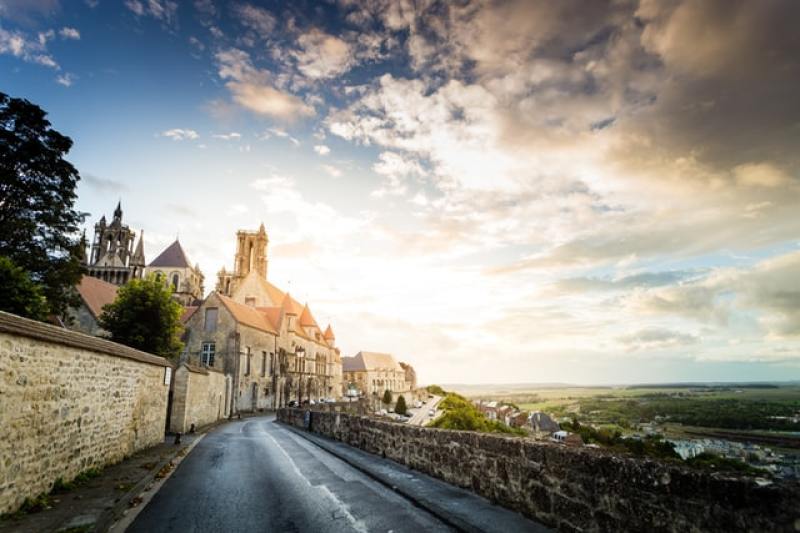
In a move to fight Islamic radicalism, France enacted a legislation that restricts religious freedom in the country -including that of Christians.
The bill titled "Supporting respect for the principles of the Republic," was passed last week, garnering 208-109 votes, with 27 abstentions. According to the country's interior minister, Gerald Darmain, the proposal aims to stop "an Islamist hostile takeover targeting Muslims" that "like gangrene [is] infecting our national unity."
It came after the nation suffered numerous Islamic terror attacks last year, including the beheading of Samuel Paty, knife attack in the former offices of Charlie Hebdo and stabbings at a church in Nice. It is now called "Law to Uphold Republican Principles and the Fight Against Separatism."
However, religious leaders are concerned that the action to protect France from the violence of Islamic extremism has also targeted all other religions, Christianity Today reported.
The law will regulate greater monitoring of religious associations. Foreign funding of French religious groups will be limited to 10,000 euros ($12,000) annually, more of such requires reporting to authorities. The rule aims to prevent foreigners from taking control of an association in the country.
The regulation also entails further government surveillance on ministers' teachings, as well as increasing the legal liability of religious leaders, penalizing speech that are deemed to encourage disobedience of laws in France.
Clement Diedrichs, general director of the National Council of Evangelicals in France, said the law shows that the nation is "no longer in a Christian society."
Francois Clavairoly, president of Protestant Federation of France, also noted that secularism in the country is now defined differently.
"We're shifting from a separation of church and state based on liberty to a separation based on control. Laïcité is no longer really a laïcité of trust and intelligence but is now a laïcité of distrust, suspicion, and control," Clavairoly stated.
The laïcité principle, generally known as secularism, is the separation of church and state. Enshrined in a 1905 law, it aims to defend religious freedom in the country.
French Christians uphold the government's efforts to address Islamic radicalism but they are troubled with restrictions that do not actually fight terrorism but equate other religions with threat of Islamist extremism.
"Our Western societies-I think it's also true for American society-have more and more difficulty understanding religious belief and the way it guides the faithful in their lives in society. Terrorism's extreme Islamist ideology that misrepresents Islam has further clouded understanding of religious life," Claivairoly said.
"Religious practice has become something menacing for many political leaders. ... So our advocacy explains that religion isn't a threat, but on the contrary, it's a resource for intelligence and citizenship," Claivairoly added.
The idea of limiting donations from abroad appeared to be unfavorable for churches, especially the new ones.
Etienne Koning, Saint-Lazare Church pastor, said that their newly-planted church is largely supported by donors from other countries. He added that the law will have a big impact in their daily lives, making it more difficult "to do church."
With the new law, Koning is also concerned with the state's increased control, as well as its impact on freedoms of speech and convictions.
But the despite this, French Protestant leaders are determined not to be bound by fear, stating that they will continue to defend the former definition of laïcité.
"Without fearing at all for our faith, we can legitimately express our concerns and the fact that we will remain attentive to the preservation of our legitimate freedoms, in defense of a well-understood laïcité," Erwan Cloarec said, director of formation of the Federation of Evangelical Baptist Churches of France and a pastor in Lyon.
"It seems important to me to continue this fight, without fear or weakness. The Lord is with us, and he invites us to faith, trust, and prayer," Cloarec further stated.
Diedrichs argued that Christians "must look for the good of the city" where they are. He further noted that they are not in "Jerusalem" anymore, but in "Babylon," wherein believers do not enjoy a Christian society. With this, he said that French evangelicals must proclaim the Gospel as early believers had done before.
However, Koning said that Diedrichs' response to the issue was "too kind and a little naïve," stating that the law's implications are enough reasons for Christians to be concerned with. But he agreed that there are a number of reasons not to feel afraid, considering that France is a democratic country and that elections can change things.
Diedrichs urged Christians from other countries to pray for France.
"Pray for us that we will be courageous in advancing the gospel," he said.
Gerard Kelly, a British pastor that has ministered in France for three decades, stated that believers must pray for the revival and growth of the church.
"We need to pray for vibrant churches so that when laws like this come up, people don't see the evangelicals as a sort of weird, fringe cult thing. Instead, they see people they know as neighbors," he said.
The pastor added that Christians can learn from what is currently happening in Europe.
Acknowledging that being in a "Babylon" society is challenging for Christians, Kelly said that exile is also beneficial for mission.
"Your dialogue with the culture is not 'You should join our enclave.' It's 'You should find Jesus,'" he declared.
"When the church is strong and rich and powerful, it forgets missional engagement because it doesn't need to. It stops engaging creatively with its neighbors and becomes complacent. God solves complacency by allowing exile to happen-because we were never meant to be separatist," Kelly concluded.























